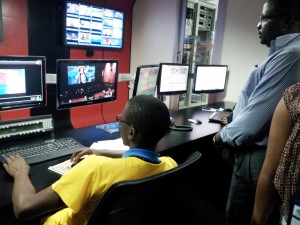Great news! Africa is the second largest source of greenfield foreign direct investment projects in Africa . This is according to a perspective paper by Ralf Krüger and Ilan Strauss published by the Columbia Center on Sustainable Investments. So it looks like African development is finally beginning to come from within the continent.
Over 400 Africa-to-Africa projects (which I like to call intra-African development projects) were carried out between January 2003 and January 2014.

The bulk of these originated in:
- South Africa (33%)
- Kenya (14%)
- Nigeria (12%)
And 45% of these projects went into the following countries (ranked in decreasing order; % not available):
- Ghana
- Uganda
- Tanzania
- Nigeria
- Kenya
- Rwanda
- Zambia
The leading source of FDI projects in Africa is still Western Europe, while China holds third place. European investors have been criticized at times for taking a slow and sometimes condescending post-colonial approach. However, Africans appreciate their concern for at least meeting the CSR standards in their home countries.
In contrast, while Chinese investments have experienced significant growth since the turn of the Millennium, they are criticized for not being as respectful to human rights in general (see a related post of mine on the Chinese presence in Africa).
During my visit to Nigeria, I heard about the concept of Africapitalism. It’s an economic philosophy that represents the private sector’s commitment to the economic transformation of Africa through investments that generate both economic prosperity and social wealth. In fact, one conclusion from my interviews with business leaders from both Nigeria and Kenya is that they view economic and social development as tightly linked. I witnessed the entrepreneurial energy of these business leaders, and their conviction that they can make a difference to the continent and its people.
Things are moving in Africa. We may be witnessing the rise of Africapitalism. Who knows – maybe with their communal mentality Africans will save capitalism from its own flaws. Any thoughts?


wish african starts investing in other african countries and we also need the diaspora to chip in, its an untapped source funds via diaspora bonds
And in addition to a source of funding, those in the diaspora bring a know-how that combined with knowledge of the local context can add a lot of value.